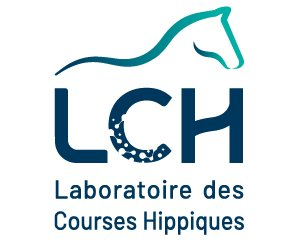Regulation of gut hormone secretion by Streptococcus probiotics
| ABG-124929 | Master internship | 5 months | 669,9€ |
| 2024-07-03 |
- Biology
Employer organisation
The Micalis Institute is a mixed research unit associating INRAE, AgroParisTech and Université Paris-Saclay.
Its mission is to develop innovative research in the field of microbiology of food for health.
The Micalis Institute merges more than 340 people including 130 scientists, engineers and scientists-teachers, 70 scientific or administrative assistants as well as 140 PhD students, post-doctorant fellows and other students, organized in 21 research teams and 3 thematic axes. The Micalis Institute also hosts 2 technological platforms and a gnotobiotic animal facility. In addition, Micalis is also closely associated to the pre-industrial functional and quantitative metagenomics demonstrator Metagenopolis.
The three thematic axes correspond to three research priority areas in close connexion:
- The emergence and control of opportunist pathogen microorganisms from food origin and the adaptation of bacteria to their environments
- The synthetic and systemic biology
- The microbial food and intestinal ecosystems and the functional interactions between food, microbiota and host
The team Functionality of Intestinal Ecosystem (FInE), within the latter axis and led by Dr. Nicolas Lapaque, studies the role and functions of intestinal microbiota in human health. Part of the research is to decipher the interactions between gut microbes and the intestinal epithelial cells, with some focus on enteroendocrine cells as key sensors of the environment by the intestine.
Description
Enteroendocrine cells (EECs) represent the largest endocrine system of the human body. Gut hormones regulate several functions related to intestinal functions and energy metabolism, and use of some hormone agonists like GLP-1 and GIP mimicking peptides are promising treatments for diabetes and obesity. EECs serve as sentinel of the intestines by sensing food intake and microbiota to timely secrete gut hormones. Several bacteria, including probiotics like streptococcus salivarius, and bacterial compounds have been shown to induce increased GLP-1 circulating levels. The regulation of EEC secretion is mediated by calcium signalling that can be triggered by different receptor activation. Cell line model representatives for EEC have been developed to express calcium reporting molecules, enabling the easy monitoring of live calcium responses.
The aim of this project is to develop high-throughput calcium secretion analysis using high content screening microscope to identify bacterial compounds from streptococcus salivarius regulating hormone secretion and to identify the molecular components inducing EEC stimulation, enabling us to propose new stimulatory pathways to modulate GLP-1 secretion.
Profile
The internship is open to graduate students or equivalent for engineering school students who want to have a 5 or 6 months research experience. The candidate must have a background in biology, with experience if possible in cell culture, microscopy and or bioinformatics.
Starting date
Vous avez déjà un compte ?
Nouvel utilisateur ?
Get ABG’s monthly newsletters including news, job offers, grants & fellowships and a selection of relevant events…
Discover our members
 Aérocentre, Pôle d'excellence régional
Aérocentre, Pôle d'excellence régional  CESI
CESI  Institut Sup'biotech de Paris
Institut Sup'biotech de Paris  Groupe AFNOR - Association française de normalisation
Groupe AFNOR - Association française de normalisation  Tecknowmetrix
Tecknowmetrix  TotalEnergies
TotalEnergies  MabDesign
MabDesign  SUEZ
SUEZ  CASDEN
CASDEN  PhDOOC
PhDOOC  Ifremer
Ifremer  ANRT
ANRT  Laboratoire National de Métrologie et d'Essais - LNE
Laboratoire National de Métrologie et d'Essais - LNE  Généthon
Généthon  Institut de Radioprotection et de Sureté Nucléaire - IRSN - Siège
Institut de Radioprotection et de Sureté Nucléaire - IRSN - Siège  ONERA - The French Aerospace Lab
ONERA - The French Aerospace Lab  ADEME
ADEME  MabDesign
MabDesign  Nokia Bell Labs France
Nokia Bell Labs France
-
JobFixed-termRef. ABG125071KTH- Sweden
ERC-funded postdoc position on the detection of gas-phase organic radicals, KTH, Stockholm, Sweden
Chemistry - Physics - Engineering sciencesAny -
JobPermanentRef. ABG124941Corteria Pharmaceuticals- Ile-de-France - France

Jeune Docteur, Chercheur en Biologie Cellulaire & Moléculaire (H/F)
BiologyAny -
JobPermanentRef. ABG123642Laboratoire des Courses Hippiques (GIE LCH)- Ile-de-France - France

Chargé(e) de Recherche et Innovation (H/F) / Senior Scientist Research & Innovation (M/F)
Chemistry - BiochemistryConfirmed












